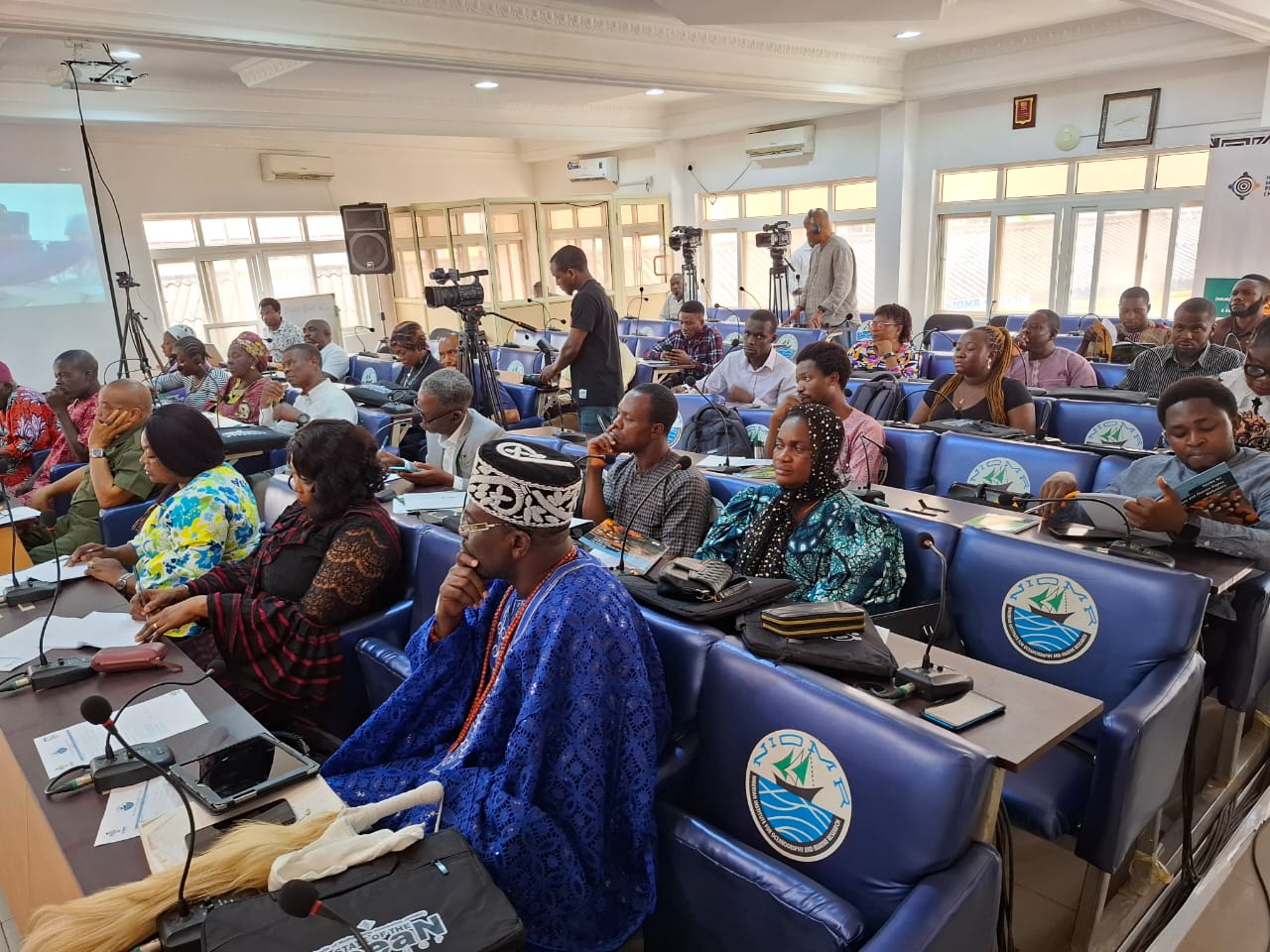 .Expert urges collaborative effort for sustainability
.Expert urges collaborative effort for sustainability
Community leaders, scientists, and activists gathered today at the Nigerian Institute of Oceanography and Marine Research (NIOMR), Victoria Island, Lagos,for the State of the Ocean Workshop, where they issued a powerful call to protect Nigeria’s oceans from increasing exploitation and ecological degradation.
In an opening address, environmental activist and Convener of the Health of Mother Earth Foundation(HOMEF),Nnimmo Bassey highlighted the dire state of the nation’s coastal ecosystems, emphasizing that the ocean must not be seen as a commodity for profit but as a vital common good that sustains life, culture, and spirituality. “Our oceans are under siege, and the communities that depend on them bear the brunt of pollution, displacement, and human rights abuses,” Bassey stated.
Across Nigeria’s coastline, many communities are suffering the consequences of laxly regulated resource extraction. “The economic forces driving this destruction prioritize profit over people,” Bassey said, pointing to the environmental devastation caused by oil spills, dredging, and corporate fishing. He named several disaster sites, including the Ororo Oil Well 1 in Ondo State, where an oil inferno has been burning for almost five years, contributing to a worsening climate crisis.
The workshop also shone a light on the plight of fishermen and women, who face diminishing catches as their waters are increasingly taken over by industrial interests. Bassey shared the heartbreaking story of Aiyetoro, a once-thriving community now threatened by rising sea levels and global warming, with fears of displacement looming unless urgent action is taken.
Makoko, a waterfront community in Lagos, was also highlighted as a prime example of environmental and social injustice. “The rights of communities like Makoko to housing, food, and health are being trampled by forces that seek to displace them for profit,” Bassey declared.
As the workshop progressed, it became clear that the destruction of marine biodiversity is closely tied to human rights violations. Bassey argued that the fight to defend the ocean is inseparable from the broader struggle for justice, calling on participants to resist the unchecked power of multinational polluters and demand accountability.
“Governments must act as stewards of the environment, ensuring that decisions about natural resources include the participation of those who rely on them,” he urged. While Nigeria has signed international agreements to protect marine ecosystems, Bassey questioned the effectiveness of these measures, citing the destruction of protected areas and the privatization of public resources.
One of the workshop’s key discussions centered on the threat posed by land reclamation projects, which are often presented as urban development but, in reality, involve the conversion and grabbing of vital aquatic ecosystems. “These developments disregard the vital role the ocean plays in regulating our climate and sustaining life on Earth,” Bassey warned.
 The event, which coincides with International Wetlands Day, ended on a call for urgent action. “Let us seize this moment to build a future where our oceans are protected, our rights are upheld, and our communities thrive,” Bassey concluded, calling for unity among scientists, policymakers, and activists to secure a sustainable future for Nigeria’s coastal regions.
The event, which coincides with International Wetlands Day, ended on a call for urgent action. “Let us seize this moment to build a future where our oceans are protected, our rights are upheld, and our communities thrive,” Bassey concluded, calling for unity among scientists, policymakers, and activists to secure a sustainable future for Nigeria’s coastal regions.
On her part, the Director of the Nigerian Institute of Oceanography and Marine Ocean Institute,
Dr. Patience Obatola,raised alarm over the damaging effects of human activities on the ocean. Speaking at a recent event, Dr. Obatola warned that these actions have caused the ocean to become increasingly destructive, posing significant risks to coastal communities and marine life.
The director emphasized the urgent need for a more sustainable approach to ocean management. She called for collaborative efforts between government bodies, local communities, and environmental organizations to educate people living in coastal areas on how to manage the ocean responsibly. According to Dr. Obatola, this education is crucial to ensure that human interaction with the sea is positive and sustainable, helping to mitigate harm and promote better ocean health.
“We need to be more friendly with the ocean,” she stated, urging everyone to play their part in preserving marine ecosystems for future generations.
As the workshop concluded, participants reaffirmed their commitment to defending the ocean and holding accountable those responsible for its exploitation, with a collective focus on sustainable, community-driven solutions.






